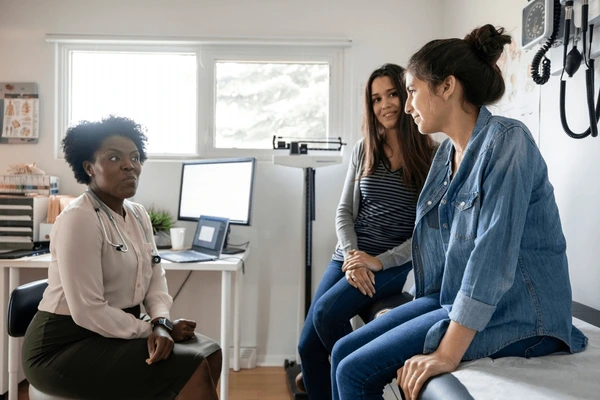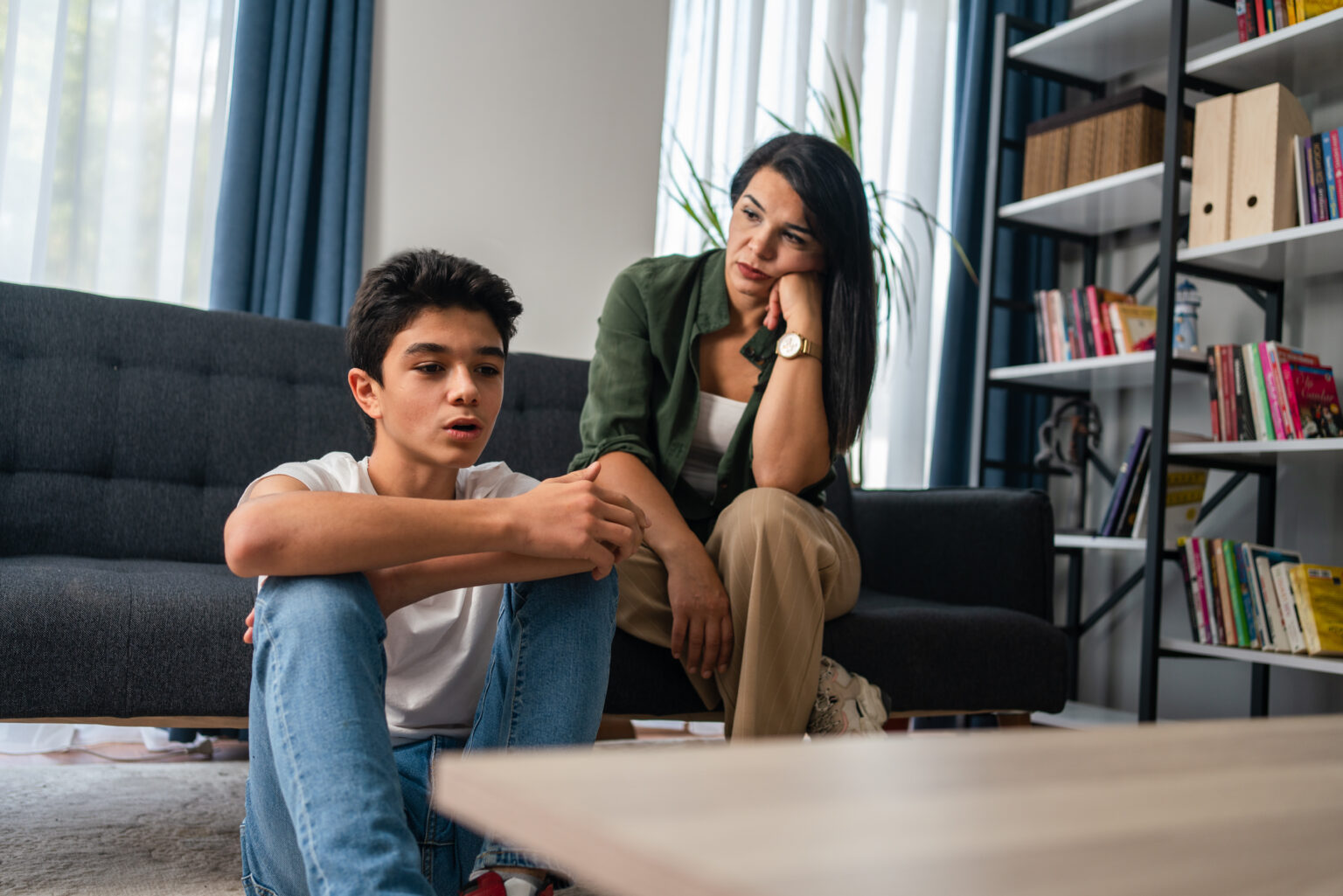Are you the parent of a pre-teen, teen, or young adult? If so, you may assume that sex education is already covered in school — but that assumption could leave your child misinformed, underprepared, and at risk. That’s why talking to kids about sex at home matters more than ever.
As a family and pediatric nurse practitioner, and a former teen mom of a now-adult child. I remember those days of strategizing with my husband about who was going to have “The Talk” with our son. He went first, but later, I casually asked my son, “What kind of birth control is your girlfriend on?” His shocked look said it all. “I don’t know,” he said.
The thought of becoming a young grandmother honestly scared me. I didn’t ask if they were sexually active – I just wanted them to be safe. So, I shared my profession, talked to my son about the importance of protection, and encouraged him to have an honest conversation with his girlfriend. I also gave him information about how she could access care through the local health department. Later, he told me she’d taken steps to get help and I was relieved that he felt safe enough to talk to me.
Real Stories, Real Consequences
Then there was Sarah (name changed for confidentiality), one of my teen patients. She was 16 years old, came in for a private issue, and could barely walk. She was scared, and so was her mother. It turned out she had herpes with a painful outbreak in the genital area. When I gave her the diagnosis, she cried. I always tell my patients that while I can prescribe medications that cure some infections, others like herpes — are lifelong.
These stories aren’t unique. They highlight a much larger issue: teens simply aren’t getting the sexual health education and access to care they need.
What Teens Aren’t Learning in School

Depending on where you live, the quality of school-based sex education varies widely. Some states only offer abstinence-until-marriage programs, and in many cases, schools are legally prohibited from discussing contraception except to highlight failure rates.
According to Guttmacher, 37 states and the District of Columbia require the provision of sex education, HIV education or both, and only 26 states require that sex education (when provided) be medically, factually, or technically accurate. That means teens in many parts of the U.S. may be taught information that’s outdated, incomplete, or biased.
Meanwhile, the U.S Human & Health Services reports that almost 50% of new sexually transmitted infections (STIs) each year occur in young people ages 15 to 24. And although the U.S. teen birth rate has declined significantly over the past two decades, it still remains higher than that of most industrialized countries — with 13.6 births per 1,000 females aged 15–19 as of 2022.
Comprehensive sex education — the kind that includes information about relationships, consent, contraception, and disease prevention has been shown to delay sexual activity, increase condom and contraceptive use, and reduce rates of teen pregnancy and STIs. But many teens never receive it.
Who’s Responsible for Talking to Kids About Sex?
Many parents say they don’t feel fully prepared when it comes to talking to kids about sex, so they often rely on schools — assuming the basics will be covered. Most people agree it’s a parent’s responsibility, and I do too. But if you’ve ever tried having “The Talk” with a teenager, you know it’s not easy. It can be uncomfortable, and many parents worry they don’t have the right words, facts, or approach. That’s why talking to kids about sex in a way that’s honest, respectful, and medically accurate must start at home — even when it’s hard
The CDC highlights parental monitoring and open communication as powerful tools for reducing risky behavior among adolescents. My husband and I worked together to create a safe environment where our son could ask questions, understand protection, and have access to condoms. But I know many families don’t have that dynamic, or the information, or even the comfort to bring it up.
Can Healthcare Providers Fill the Gap?

You might expect doctors and nurses to step in but that doesn’t always happen either. Many teens only see a provider when they’re sick, and even during routine exams, conversations about sex are often skipped.
Not every provider is trained or comfortable enough to bring up sensitive subjects with teens, especially in short visits. It took me years of clinical experience, observation, and intentional effort to feel confident talking to my patients about sex, protection, and consent. But not every provider has the same background or bandwidth.
When I asked Sarah who had talked to her about sex education, she recalled an abstinence-only class from school. Her mother had told her simply to “stay a virgin.” Her last medical exam? At age 12 and no one had spoken to her about sexual health since.
The Bottom Line: Why Talking to Kids About Sex Matters More Than Ever
Whether you’re a parent, guardian, educator, or healthcare provider, it’s time to rethink how we equip young people with the knowledge and tools they need. Teens deserve:
- Comprehensive, medically accurate sex education in schools
- Open, judgment-free communication at home
- Access to reproductive healthcare and confidential support services
- Clinicians who normalize conversations about sexual health
We can’t rely on any one system — not families, not schools, not healthcare — to carry the full burden alone. But each of us has a role to play.
As adults, we have the opportunity (and the responsibility) to be honest, supportive, and science-based. That means no more whispering around the subject or assuming someone else will handle it.
Let’s make talking to kids about sex a normal part of growing up — not a taboo or one-time awkward chat. When we show up with empathy, facts, and openness, we empower them to make safe, informed choices. Because silence isn’t protection — it’s a risk.


